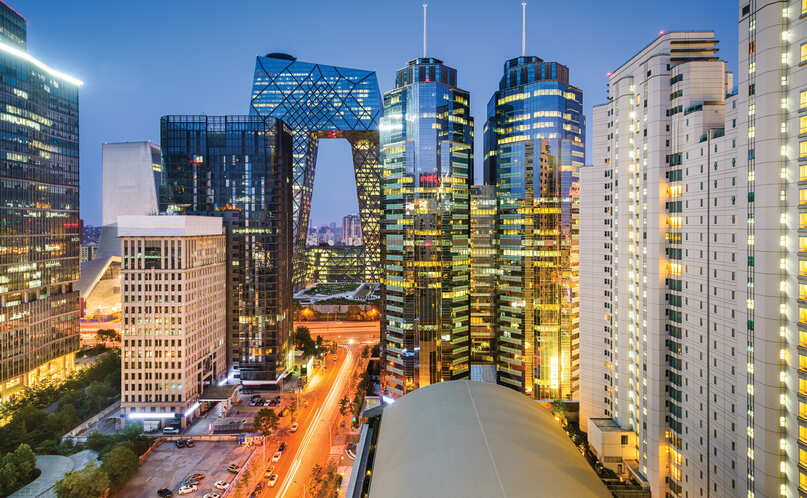
China capital and tourism flows will recover slowly post-covid
The sun has risen on China’s post-covid era, but the economy and real estate markets will be slow to warm up; both inbound and outbound investment are set to be sluggish.
The sun has risen on China’s post-covid era, but the economy and real estate markets will be slow to warm up; both inbound and outbound investment are set to be sluggish.
In December, China abandoned its ‘zero covid’ policy, which had put millions of citizens in hard lockdowns and subdued the economy. The change of tack led to a huge wave of covid infections which, however there is hope that such a rapid spread will offer a degree of herd immunity and allow the economy to recover.
Oxford Economics has raised its 2023 GDP growth prediction for China by 700 basis points since the end of zero covid and expects most of the recovery to come in the last three quarters of the year.
James Macdonald, Head of Research, China at Savills, says: “The first quarter or half of the year will still be challenging but many are hoping we will see a recovery in the second half of 2023, with an economic recovery driven by consumers and also less of a drag from the property sector, following broader government support.”
Overseas interest in China real estate fell sharply during the covid lockdowns last year; MSCI Real Assets data show overseas investment in Chinese real estate fell 46% year-on-year in 2022. However the recovery is likely to be slow too. The ANREV Investment Intentions Survey 2023 shows only 23% of investors targeting China Tier 1 cities this year, down from 33% in 2022.
Macdonald says: “Overseas investment in China, particularly from outside Asia, is likely to be slow to recover. Investors will want to see how the economic recovery progresses and there are still geopolitical concerns for some GPs.”
He also doubts that Chinese investors will be in a rush to go overseas. “They have their hands full in China and will be looking for distressed or M&A opportunities here. They may also expect international markets be less attractive due to rising interest rates.”
Chinese tourists have been significantly absent from Asia Pacific and global destinations since 2020. Prior to covid, they made 171 million trips, supporting tourist industries across the world. However, with some nations imposing restrictions on Chinese travellers, it will take some time to get back to anywhere near pre-pandemic levels.
Macdonald says: “Outbound tourism is likely to be significantly below pre-covid levels. We expect wealthy travellers start to return to locations such as Japan, Australia and Europe in the first half of this year and then middle-income tourism, to locations such as Southeast Asia, to pick up in the second half.”
Travel and commerce between Mainland China and Hong Kong has yet to recover and is not expected to rescue the Special Administrative Region’s real estate market in 2023. Savills predicts office rents – down 30% since 2019 – will fall another 10% this year.
Luxury house prices are expected to fall another 5% to 10% in 2023 before more Mainland high net worth capital returns to the market towards the end of 2023, while luxury apartments prices are set to fall a further 5%.
“Any Mainland-led recovery is not likely to come until later this year and the Hong Kong market still needs to digest rising interest rates,” says Simon Smith, Head of Asia Pacific Research & Consultancy at Savills.
Some Hong Kong developers, however, have announced plans to invest more in the Mainland. Last year, Swire Properties announced plans to invest HK$50 billion ($6.4 billion) in Mainland China real estate over the next decade.
Further reading:
Savills China Research
Contact us:
James Macdonald



